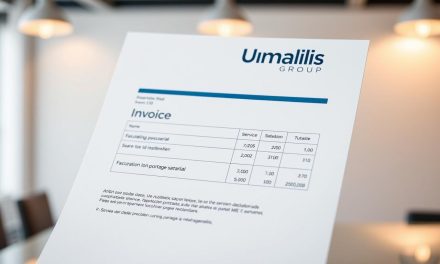In today’s rapidly evolving professional landscape, independent professionals face unique challenges in maintaining job stability and security. The concept of job stability has transformed significantly with technological advancements, economic fluctuations, and changing work paradigms.
As an independent professional, you understand the importance of having a stable career that can withstand market fluctuations and economic uncertainties. Developing strategic approaches to ensure your career longevity and financial security is crucial.
By understanding the current market dynamics and implementing the right strategies, you can create a more stable and secure professional future. This comprehensive guide will explore practical strategies for building and maintaining job stability as an independent professional.
Table of Contents
Key Takeaways
- Understand the distinction between job security and job stability
- Develop strategic approaches to ensure career longevity
- Implement practical strategies for building job stability
- Create a stable and secure professional future
- Build resilience against market fluctuations and economic uncertainties
Understanding Job Stability in Today’s Market
In today’s fast-paced professional landscape, understanding the nuances of job stability is crucial for independent professionals. The contemporary job market is characterized by rapid changes and uncertainties, making it essential for individuals to distinguish between job security and job stability.
While often used interchangeably, job security and job stability represent distinct concepts. Job security refers to the assurance that your current position or client relationship will continue without immediate threat of termination. On the other hand, job stability encompasses the broader predictability and continuity of your professional path over the long term.
The Difference Between Job Security and Job Stability
For independent professionals, understanding this distinction is vital. Job stability often means having a consistent flow of work and income, even if individual clients or projects change. This distinction is crucial because strategies that enhance security may differ from those that build stability.
- Job security is about maintaining your current job or client relationship.
- Job stability is about the long-term predictability of your professional path.
- Independent professionals face unique challenges in building stability without traditional employment structures.
The gig economy and project-based work have created new paradigms that require different approaches to professional stability. Market trends indicate that those who can adapt to changing conditions while maintaining core expertise achieve the greatest stability.
Assessing Your Current Professional Stability
To enhance your job security, it’s essential to start by assessing your current professional position and market standing. This involves a thorough evaluation of various factors that influence your career stability.
Evaluating Your Skills and Market Position
Begin by examining your core skills and how they align with current and emerging market demands. Consider what unique combination of skills, experience, and expertise you bring to your clients, enhancing your competitive edge.
- Analyze your client portfolio to identify potential concentration risks.
- Examine your revenue patterns to identify trends and potential vulnerabilities.
- Assess the strength and diversity of your professional network.
- Review your digital presence to ensure it accurately reflects your expertise.
- Consider the impact of technological changes on your services and identify areas for upskilling.
- Evaluate your financial reserves to determine if they provide adequate protection during potential work gaps.
This comprehensive self-assessment lays the groundwork for developing targeted strategies to enhance your professional stability and job security in a rapidly changing market.
Developing a Diverse Skill Portfolio
To achieve long-term job stability, independent professionals must focus on acquiring a wide range of skills. In a rapidly changing job market, having a diverse skill portfolio not only enhances your employability but also opens up new job opportunities. As an independent professional, it’s crucial to stay adaptable and continuously update your skill set to remain relevant.
Developing a diverse portfolio of technical skills is fundamental to enhancing your employability and job stability. Focus on acquiring new skills that complement your core expertise while expanding your service offerings to clients. Digital literacy has become non-negotiable, and proficiency with relevant software, platforms, and tools in your field is essential.
Key Technical Skills for Employability
Certain technical skills are in high demand across industries, providing versatility and increased market value. Consider developing capabilities in data analysis, as the ability to interpret and leverage data is valuable across virtually all industries. Learning new skills such as project management enables you to handle more complex client engagements and demonstrate your ability to deliver results.
Creating Multiple Income Streams
For independent professionals, the pursuit of job stability is significantly enhanced by the creation of multiple income streams. This strategic approach not only safeguards against the unpredictability of the market but also ensures a steady flow of income, enabling you to meet your financial obligations and invest in your future.
Creating multiple income streams is a cornerstone strategy for independent professionals seeking greater job stability. This can be achieved through various methods, including diversifying your client base across different industries to protect against sector-specific downturns.
- Diversify your client base to minimize concentration risk, ensuring no single client represents more than 20-30% of your total income.
- Develop complementary service offerings that leverage your existing expertise but serve different client needs.
- Explore passive income opportunities, such as creating digital products or subscription services.
Diversifying Your Client Base
Diversifying your client base is crucial for reducing dependence on a single income source. By spreading your services across various industries, you can mitigate the risks associated with economic fluctuations in any one sector.
To achieve this, consider strategic partnerships with other independent professionals to access new markets and share opportunities. Additionally, retainer arrangements with key clients can provide more predictable monthly income.
Building a Strong Professional Network
In today’s competitive job market, independent professionals must prioritize building a robust professional network to safeguard their career. Networking makes you more visible and opens doors to opportunities. By establishing goodwill with colleagues and supervisors, you ensure that your contributions are appreciated.
A robust professional network serves as both a safety net and an opportunity generator for independent professionals. To achieve this, focus on building meaningful relationships based on mutual value rather than just collecting contacts.
Strategic Networking for Long-term Stability
Effective networking involves more than just attending events; it’s about cultivating deeper connections with key professionals in your field. Industry associations, professional groups, and online communities provide structured networking opportunities. Consider creating a personal board of advisors—trusted professionals who can offer guidance on your career decisions.
- Develop a systematic approach to networking by scheduling regular check-ins with important contacts.
- Position yourself as a connector who introduces others to valuable contacts, establishing yourself as a networking hub.
- Share your expertise through content creation, speaking engagements, or mentoring to enhance your visibility and credibility.
- Remember that effective networking is reciprocal—look for opportunities to support others in your network before you need their help.
Embracing Continuous Learning and Adaptation

The key to thriving as an independent professional lies in embracing a culture of continuous learning and adaptation. In a rapidly changing job market, it’s essential to stay updated with the latest industry trends and technologies to maintain your career stability.
To achieve this, you must be proactive in learning new skills and expanding your professional skills. This involves dedicating time to research, attending workshops, and participating in online courses that enhance your employability in the market.
Staying Current with Industry Trends
Staying current requires a structured approach. Allocate a specific percentage of your income towards professional development. This could be through formal education or experiential learning through challenging projects. It’s also crucial to stay informed about technological advancements, such as AI and automation, that are changing your field.
- Develop a routine that fits your schedule and learning style.
- Seek feedback from clients and peers to identify new skills needed.
- Join mastermind groups or professional communities to learn from peers.
By embracing continuous learning and adaptation, you can ensure your job stability and remain relevant in a dynamic market. It’s about being open to learning new things and adapting to changes over time.
Establishing Your Professional Brand
Establishing a strong professional brand is crucial for independent professionals to achieve job stability in today’s competitive market. A strong brand not only differentiates you from competitors but also creates recognition that leads to new opportunities.
Your professional brand is a reflection of your values, skills, and the unique value proposition you offer to clients. It encompasses various elements, including your visual identity, communication style, and the experience you deliver.
Creating a Compelling Personal Brand Story
Your personal brand story should articulate not just what you do, but why you do it and the unique approach you bring to your work. This narrative is the foundation upon which your brand is built.
- Develop a clear value proposition that communicates the specific problems you solve and results you deliver for clients.
- Ensure consistency across all touchpoints—from your website and social media to proposals and client interactions.
- Leverage testimonials and case studies that demonstrate measurable outcomes as powerful brand assets.
For more insights on enhancing your personal branding, visit this resource for valuable tips and strategies.
| Brand Element | Description | Impact |
|---|---|---|
| Visual Identity | Logo, color scheme, design elements | Creates immediate impressions and recognition |
| Communication Style | Writing voice, presentation approach | Shapes client perceptions and engagement |
| Value Proposition | Clear statement of the value delivered | Drives client decisions and loyalty |
By focusing on these elements and ensuring they align with your career goals and client needs, you can establish a robust professional brand that enhances your job stability and opens up new opportunities in your field.
Financial Planning for Job Stability

To maintain job stability, independent professionals must prioritize effective financial planning strategies. Financial predictability gives confidence to make long-term investments, such as buying a home or funding education. Sound financial planning is the foundation of job stability, providing resilience during income fluctuations.
Creating an Emergency Fund
An emergency fund covering 6-12 months of essential expenses is critical for independent professionals. This fund acts as a safety net during periods of financial uncertainty. To create such a fund, it’s essential to develop a clear understanding of your minimum viable income and implement systems for managing cash flow during project gaps.
Effective financial planning also involves tax planning, retirement planning, and insurance coverage. Working with a financial professional can help optimize your tax strategy. Consider business structures like sole proprietorship, LLC, or S-Corp that offer the best balance of liability protection and tax advantages. Establishing SEP IRAs or Solo401(k)s can help with retirement planning.
| Financial Planning Aspect | Description | Benefits |
|---|---|---|
| Emergency Fund | 6-12 months of essential expenses | Provides financial security during income fluctuations |
| Tax Planning | Optimizing tax strategy with a financial professional | Reduces tax liability, increases savings |
| Retirement Planning | Establishing SEP IRAs or Solo401(k)s | Ensures financial security post-retirement |
By implementing these financial planning strategies, independent professionals can achieve job stability and security. Financial stability creates the freedom to make professional decisions based on strategic considerations rather than immediate income needs.
Navigating Economic Downturns and Market Changes
Economic fluctuations can be daunting, but with the right strategies, independent professionals can safeguard their career stability. The global economy’s inherent unpredictability means that job security and stability are not guaranteed. However, by understanding economic cycles and adapting their strategies, independent professionals can mitigate the risks associated with job insecurity and layoffs.
To navigate economic downturns successfully, it’s essential to develop strategies that prioritize job stability. This involves identifying which services are deemed essential by clients and focusing on those that help reduce costs or increase efficiency. Creating flexible service packages can also help accommodate clients facing budget constraints.
Recession-Proofing Your Independent Career
Recession-proofing begins with a proactive approach. This includes monitoring economic indicators in your primary industries to anticipate changes and adapt your strategy. Consider counter-cyclical opportunities that may grow during economic downturns. Maintaining a lean operational structure allows for quick scaling if needed.
- Develop flexible service packages to accommodate budget constraints.
- Build relationships with decision-makers who understand your value.
- Invest in skill development during slower periods.
By adopting these strategies, independent professionals can enhance their job stability and navigate the challenges of economic fluctuations. It’s about being proactive and adaptable in the face of market changes.
Maintaining Work-Life Balance for Sustainable Success
Achieving sustainable success as an independent professional requires more than just job stability; it demands a delicate balance between work and personal life. Job insecurity can lead to stress, anxiety, and depression, making it challenging to maintain this balance.
Sustainable job stability requires maintaining your most important asset—your physical and mental well-being. Independent professionals face unique work-life balance challenges without the structure of traditional employment.
Setting Boundaries to Prevent Burnout
To prevent burnout, it’s essential to establish clear boundaries around working hours, client communication expectations, and project scope. This includes creating dedicated workspaces that allow you to physically separate professional and personal life, even when working from home.
- Implement systems to track your time and energy expenditure to identify patterns that lead to burnout or diminished productivity.
- Schedule regular breaks and vacations—communicate these to clients well in advance and establish coverage if necessary.
- Develop routines that support your physical health, including regular exercise, proper nutrition, and adequate sleep.
- Practice stress management techniques such as meditation, deep breathing, or other mindfulness practices that work for you.
Maintaining work-life balance isn’t selfish—it’s essential for delivering your best work and ensuring long-term career sustainability. By prioritizing your well-being, you can achieve a more stable and fulfilling professional life.
Conclusion: Building Long-Term Job Stability as an Independent Professional
The journey to job stability for independent professionals is multifaceted, involving a combination of skill development, diversification, and strategic networking. As an independent professional, your ability to adapt and evolve in response to industry trends and economic shifts is crucial.
To achieve long-term job security, it’s essential to implement a multifaceted approach that combines strategic planning with continuous adaptation. The strategies outlined in this guide work together as an integrated system, creating greater stability than any single approach could on its own.
Key to this approach is recognizing that job stability for independent professionals looks different from traditional employment security but can ultimately provide greater control over your professional destiny. Regularly reassessing your stability strategies as market conditions, personal circumstances, and professional goals evolve is vital.
By developing resilience through diversification—of skills, clients, income streams, and professional relationships—you can withstand inevitable market fluctuations. Embracing the mindset that stability comes from adaptability rather than rigidity is crucial in today’s rapidly changing professional landscape.
With intentional planning and implementation of these strategies, you can create a thriving, stable independent career that provides both financial security and professional fulfillment. By following these guidelines, independent professionals can build a resilient foundation for their careers.
FAQ
What does job security mean for independent professionals?
For independent professionals, security means having a stable income, a strong professional network, and the ability to adapt to changes in the market. It involves creating a diverse skill portfolio, building multiple income streams, and maintaining a robust professional brand.
How can I assess my current professional security?
To assess your current professional security, evaluate your skills and market position, consider your client base and the level of diversification, and review your financial planning, including emergency funds. This assessment will help you identify areas for improvement.
What skills are most valuable for independent professionals to enhance their employability?
Technical skills that are in high demand, such as data analysis, digital marketing, and cloud computing, can increase your employability. Additionally, skills like project management, communication, and problem-solving are valuable across various industries.
How can I create multiple income streams as an independent professional?
Diversifying your client base and offering a range of services can help create multiple income streams. You can also consider creating and selling online courses, offering consulting services, or developing a product related to your expertise.
Why is continuous learning important for maintaining professional security?
Continuous learning and adaptation are crucial for staying current with industry trends and maintaining your competitive edge. It enables you to respond to changes in the market and expand your service offerings.
How can I maintain a work-life balance as an independent professional?
To maintain a work-life balance, set clear boundaries, prioritize your well-being, and manage your workload effectively. Establishing a routine and taking breaks can help prevent burnout and ensure sustainable success.
What financial planning strategies can help ensure professional security?
Creating an emergency fund, managing your cash flow, and planning for retirement are essential financial planning strategies. These actions can provide a financial safety net and reduce stress.
How can I build a strong professional network?
Building a strong professional network involves strategic networking, engaging with your community, and maintaining relationships with clients and peers. Attend industry events, join professional organizations, and participate in online forums to expand your network.





